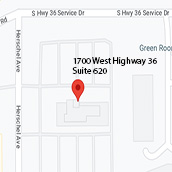What is Involved in Wrongful Death Cases?
In many respects, a wrongful death case is similar to a personal injury case. Just like in a personal injury case, the plaintiff in a wrongful death case must prove that the defendant was negligent and that such negligence was a cause of loss, injury, or damage to the plaintiff. Likewise, just as in a personal injury case, the plaintiff in a wrongful death case must also prove the extent of damages suffered as a result of the wrongful death.
A wrongful death case is brought by the personal representative or executor of the estate and it is brought on behalf of the estate and all recognized survivors. Although the law varies from state to state, generally the estate is entitled to recover medical and funeral expenses, as well as any lost prospective net accumulations of the estate which might have been expected but for the wrongful death of the decedent. “Prospective net accumulations” means the amount of money the decedent would have left behind for their heirs had they lived to their normal life expectancy. In cases where the decedent is a high-wage earner, the prospective net accumulations of the estate can be significant; in other cases, where the decedent is an average-wage earner, the prospective net accumulations of the estate may not be that great, as most people don’t leave a lot of money behind for their heirs if they live into their late 70s or early 80s.
In addition to the damages recoverable by the decedent’s estate, the personal representative or executor of the estate can also seek damages for each recognized survivor of the decedent. Again, the law varies from state to state as to who is a “recognized survivor,” but generally a surviving spouse and minor children can recover for their mental anguish and emotional distress due to the death of their loved one. In addition, the survivors are generally entitled to recover damages for their loss of support and services due to the wrongful death. For example, if a husband is killed due to the negligence of another, the surviving wife is entitled to recover damages for the household services that were performed by the husband, such as yard work, home repairs, etc.
In evaluating loss of support and services, the survivor’s relationship to the decedent, the amount of the decedent’s probable net income available for distribution to the particular survivor, and the replacement value of the decedent’s services to the survivor may be considered. In computing the duration of future losses, the joint life expectancies of the survivor and the decedent and the period of minority, in the case of healthy minor children, may be considered.
In some cases, if a wrongful death occurs and the decedent does not leave behind a surviving spouse or minor children, adult children may make a claim for the death of their parent. The damages recoverable are the same scope of damages recoverable by other survivors-mental anguish, emotional distress, and loss of support and services. Again, damages recoverable vary from state to state and it is important to consult with a wrongful death lawyer to determine the specific damages recoverable by the estate and the recognized survivors.






